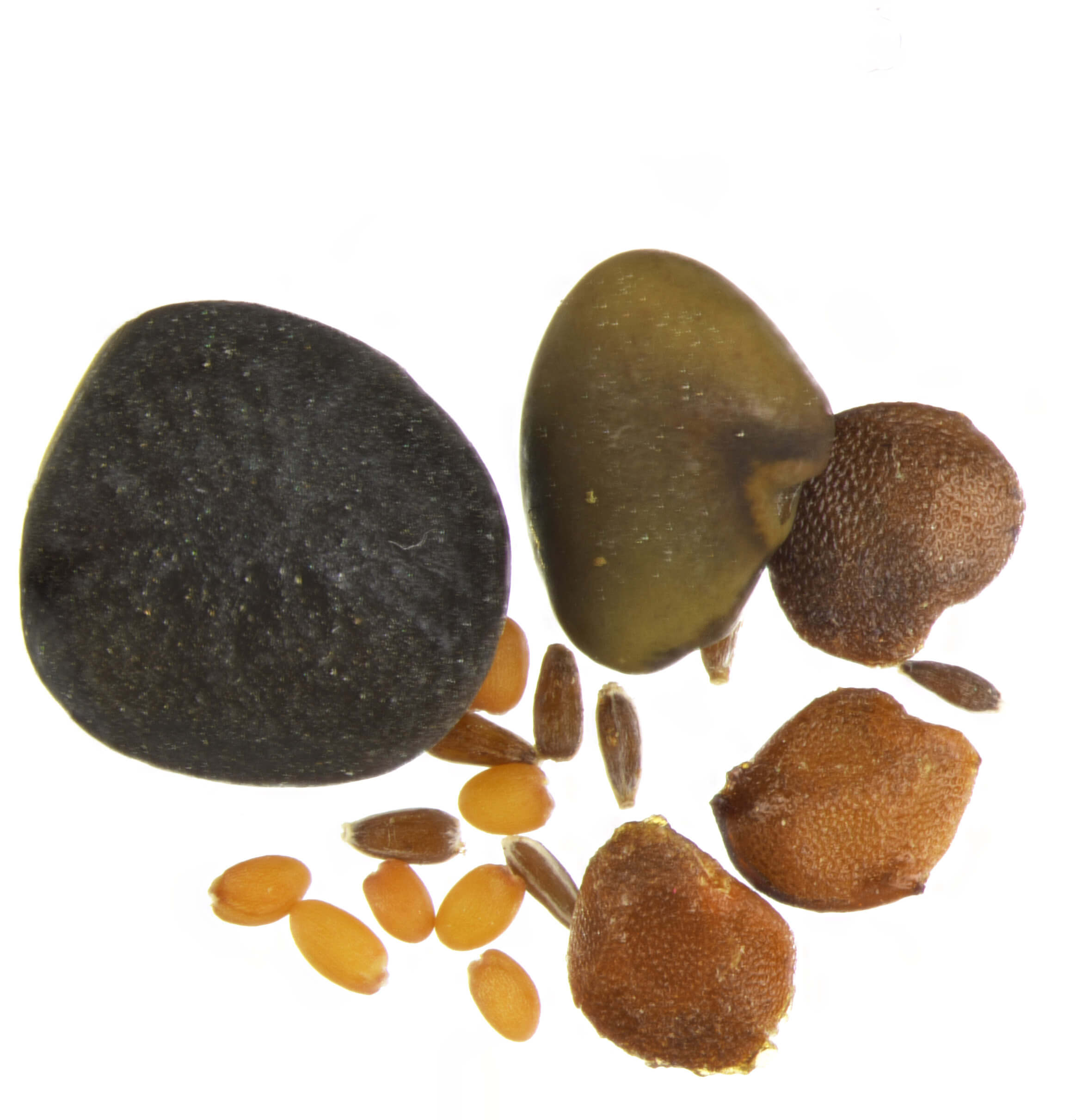The bag of seeds that will be taken is of the seeds of closely related wild varieties, which are collected and preserved in the Israeli gene bank at the Volcani Institute. These seeds are unique and valuable in light of the great genetic diversity they treasure and form the basis of research aimed at producing plants that can adapt to extreme climate change

Astronaut Eitan Stiva, who will take off at the end of this month to the International Space Station (ISS) as a member of the AX-1 crew and as part of the 'Sky' mission, will take with him a bag of seeds of varieties with the ability to adapt to extreme climate conditions from the Volcanic Institute, which is celebrating its 100th anniversary. The unique collaboration with the Volcanic Institute is particularly significant for Stiva since his father, the late Dr. Ehud Stiva, worked as a researcher at the Volcanic Institute for many years and specialized in research in the field of soil, water and environmental sciences. Taking the collection of varieties will also illustrate the importance of the issue of sustainability and agriculture for the mission.
The bag of seeds that will be taken is of the seeds of closely related wild varieties, which are collected and preserved in the Israeli gene bank at the Volcani Institute. These seeds are unique and valuable in light of the great genetic diversity they treasure and form the basis of research aimed at producing plants that can adapt to extreme climate change. The importance of the research is enormous in light of the many times the Food and Agriculture Organization of the United Nations (FAO) has warned in recent years about a global food crisis that is expected to occur due to the climate crisis.
The 'Sky' mission, designed to stimulate curiosity and creativity through a human journey into space, is dedicated to recognizing the potential inherent in the exploration of the universe, raising awareness of the importance of protecting the Earth, while deepening international cooperation and promoting the space industry. The mission will enrich education and be exposed to students, educators, researchers, intellectuals and culture and the entire public, through dozens of scientific experiments and blue and white technological demonstrations that will be carried out on the station, through the transmission of educational content to Israeli children from space as well as the creation and presentation of Israeli art. Because no dream is too far.
Eitan Stiva said: "The Volcanic Institute aims to help deal with climate change and develop the agricultural sector by combining Israeli technology. The institute is close to my heart, as the son of a veteran researcher, who many times took me to visit the experimental fields around the country and the physics laboratories. I learned from him to know the different types of soil and I saw the creative ideas for collecting and saving water."
Mr. Oded Forer, Minister of Agriculture and Development of the Periphery, the Negev and the Galilee: "I congratulate Eitan Stiva and wish him success in the "Rakia" mission to explore the space environment. Eitan expresses the Israeli scientific spirit and futuristic thinking, which we also see in the groundbreaking research carried out at the Volcanic Institute at the Ministry of Agriculture."
"Dr. Einav Maizlish Gathi, Director of the Israeli Gene Bank at the Volcanic Institute said: "Sending a sample of a collection of seeds of cultivated wild plants to space illustrates the importance of preserving this valuable biological diversity and our constant search for scientific solutions designed to ensure the supply of food in a world where living conditions change from moment to moment."
The Volcani Institute, celebrating its 100th anniversary, is the largest agricultural research body in the country, which is responsible for many and varied developments that today constitute the agricultural, modern and industrial infrastructure of the State of Israel. The institute's developments, in various fields of agriculture and the environment, are known worldwide and so far, the institute has registered over 1,000 varieties and over 500 patent families. Among the famous varieties: "Galia" melon, "Barnea" olive oil, "Hanuch" peanuts, "Maya" mangoes and new wheat varieties. All of them are considered to have the best quality and taste in the world.
Eye examination from Bar Ilan
Bar-Ilan University, which was privileged to participate in the mission, will send with Stiva a scientific experiment developed at the School of Optometry and Vision Sciences.
An application was installed on the tablet computer that Stiva will take with him to the stars, which will allow vision measurement at several time points during the flight. Prof. Uri Folat, head of the Bar-Ilan School of Optometry and Vision Sciences, explained that due to the changes in gravity in space, a decrease in the astronauts' vision is expected, especially in close-up vision. Stiva's vision will be measured before the flight, after it and as mentioned - also during it, thanks to the development of Prof. Folat and his colleagues. Bar-Ilan are proud and excited about the opportunity to be among the selected research institutions that get to fly experiments into space.
